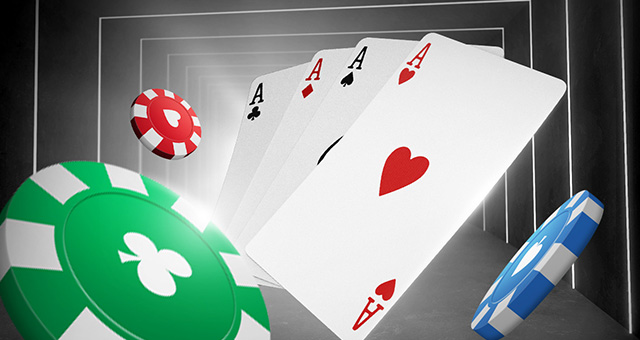
Poker is a card game in which players place bets against each other for a chance to win the pot. It is a game that involves a lot of luck but also requires skill and psychology. It can be a very exciting and rewarding game to play, especially when you are winning. It can also be very frustrating when you lose.
There are many different kinds of poker games and variations. But they all share the same basic rules and principles. In poker the object of the game is to make the best hand possible using five cards that you have in your possession. The highest hand wins the pot. The game is played with a standard deck of 52 cards (although some games may use more or less than this). Each card has a rank (Ace, King, Queen, Jack, etc.) and a suit (spades, hearts, diamonds or clubs). Some games also add wild cards or jokers to the mix.
In most poker variants the first round of betting begins with one player placing an ante bet. The dealer then shuffles the cards and deals them to each player, beginning with the player to his or her left. The cards can be dealt either face-up or face-down. Then the game proceeds in a series of betting intervals, known as rounds. During each round the player can raise, call or fold. Depending on the specific game, the player might be forced to place a bet at the start of each round (known as a forced bet) or he or she can choose to place a bet based on expected value.
The more information you have about your opponent’s hand, the better. This is why position is so important in poker. You want to be the last player to act in a round because you will have more information about your opponent’s chances of having a good hand than you would if you were in the middle of the action. This gives you bluff equity and makes it easier to calculate the odds of your own hand.
Another reason to pay attention to your opponents is that you can often tell what kind of hand they have by their betting patterns. For example if someone is calling every bet on the flop, turn and river then they must have a strong hand. This is very simplified but it’s the foundation for reading other players, a key part of successful poker strategy. Obviously it’s impossible to read everything but you should try to learn to pick up on subtle physical poker tells such as scratching your nose or playing nervously with your chips. But most of your reads will come from patterns in their betting behavior.